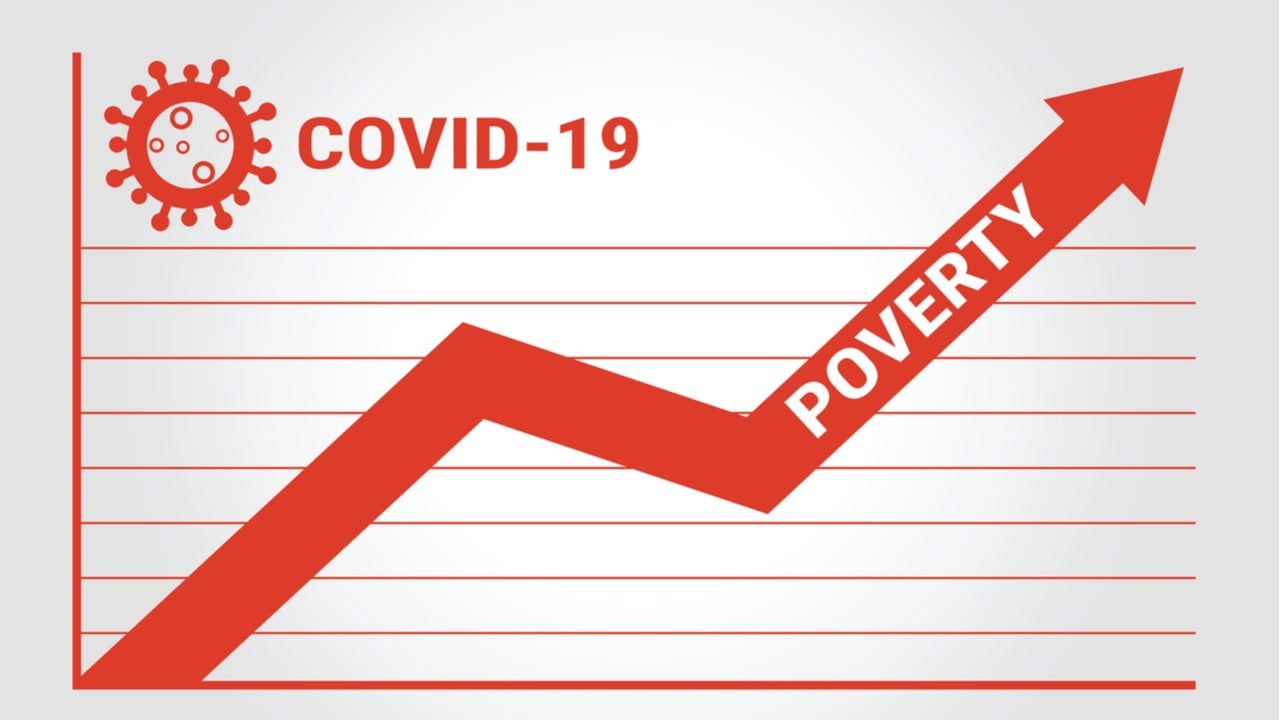Latest research has indicated that millions of people have been pushed into poverty due to the impact of the Covid-19 pandemic. As infection cases continue to rise and without additional aid, more people are expected to be impacted. Macroeconomic influencers share their views on the Covid-19 impact.
Justin Wolfers
Justin Wolfers, professor at the University of Michigan, shared an article on the number of people in poverty growing to eight million in the US, according to research conducted by Columbia University. The $2tn stimulus package announced by the US government initially helped in saving millions of people from poverty. The aid, however, has now exhausted pushing millions into poverty.
Although the job market has witnessed improvement since May, the rebound in the economy is too slow to offset these benefits. The economy is showing further signs of contraction due to increasing layoffs, rising coronavirus cases and lack of progress on stimulus talks. Minority groups including Black and Latino people are most affected due to the impact on the industries that they mostly employed.
The government's early fiscal relief plan kept poverty from rising during the early days of the covid crisis. But that money dried up and the government got covid fatigue, and poverty is now rising sharply. https://t.co/gtYDsfCW5J
— Justin Wolfers (@JustinWolfers) October 15, 2020

US Tariffs are shifting - will you react or anticipate?
Don’t let policy changes catch you off guard. Stay proactive with real-time data and expert analysis.
By GlobalDataArvind Subramanian
Arvind Subramanian, professor at Ashoka University, shared an article on how emerging economies should not be too concerned about the predictions by western economists that their export-led model is no longer viable. The article noted that the end of globalisation as forecast by some experts is exaggerated.
Although exports of goods have declined by 21% of world GDP compared to 25% decline in the 2008 financial crisis, exports of services are continuing and increasing from 6.5% of GDP to 7%. Services exports are expected to continue as the pandemic forces physical distancing.
As companies in western economies ask employees to permanently work from home, these jobs can be relocated easily and cheaply to developing economies. Further, developing economies can offer alternative to China’s exports as the country’s competitiveness is decreasing along with its share of low-skill exports.
Western economists and policy advisers should promote open markets and prevent protectionism to avoid major impact on the poorer economies of the world, the article noted.
My piece today in @ftopinion on export pessimism as a kind of intellectual betrayal by the West and why developing countries must resist that. https://t.co/hmaLuxlKHm
— Arvind Subramanian (@arvindsubraman) October 15, 2020
Caroline Krafft
Caroline Krafft, economist and associate prof at St. Kate’s Economics and Political Science, shared an article on the impact of the pandemic on the Middle East and North Africa (MENA) region. Countries such as Jordan and Tunisia have been particularly impacted by the pandemic.
Jordan has emerged as a regional hotspot for coronavirus infections and the country’s economy contracted by 3.6% in the second quarter. The tightening of coronavirus restrictions including lockdowns has further exacerbated the decline particularly impacting the hospitality industry.
Tunisia is also facing similar issues as the economy contracted by 8% and GDP declined by 12%. The tourism sector, which accounts for 12% of the country’s GDP, has been impacted the most followed by the textile industry.
"Pandemic Kicks Some MENA Economies When They’re Already Down" from @TheMediaLine (with @raguiassaad as well) discussing how COVID-19 has affected MENA https://t.co/1dywxJ1MLh
— Caroline Krafft (@ckrafftc) October 15, 2020
Howard Archer
Howard Archer, Chief Economic Advisor to EY ITEM Club, shared an article on the European Central Bank (ECB) not planning for an immediate stimulus plan despite contraction of the economy and rising coronavirus cases. With new lockdown measures being implemented across the euro zone, the economic activity is expected to be further impacted.
Policy makers at the ECB plan to wait until December to gain more clarity on various aspects including inflation and growth forecasts enabling them to evaluate the overall economic damage. Securing approval for a stimulus package by considering all the factors affecting the economy will also be more likely, the article noted.
#Eurozone #monetary policy – #ECB officials see little reason to rush into expanding emergency stimulus despite a sharp slowdown in the #economy and increased #coronavirus cases https://t.co/3y10FQs7iZ via @markets
— Howard Archer (@HowardArcherUK) October 15, 2020
Linda Yueh
Linda Yueh, economist at University of Oxford, shared an article on how small gatherings are contributing to rise in coronavirus cases in the US, according to the US Centers for Disease Control and Prevention (CDC). With the Thanksgiving holiday coming up, the CDC noted that continued mitigation steps are needed to control the spread of infections in the household setting.
The CDC also noted that a coronavirus vaccine may become available by the end of year. The centre added that the initial supply of vaccines will be low but aims to distribute the vaccine as soon as large quantities become available.
https://twitter.com/lindayueh/status/1316649926156263424




